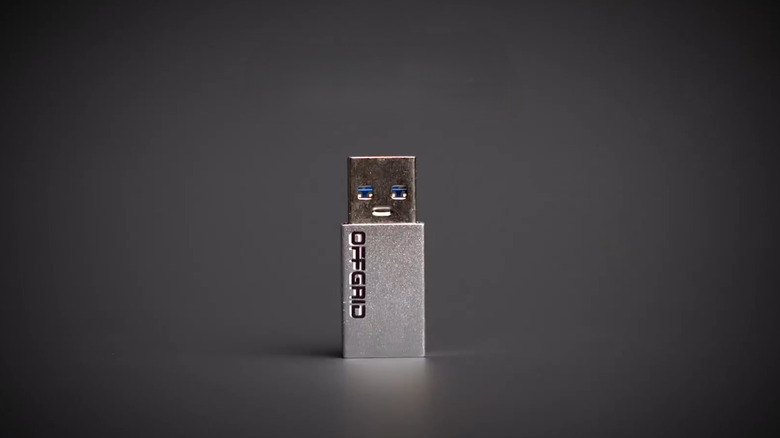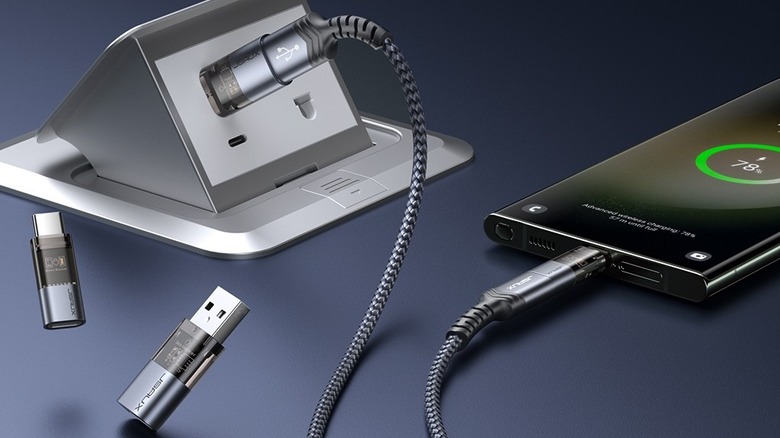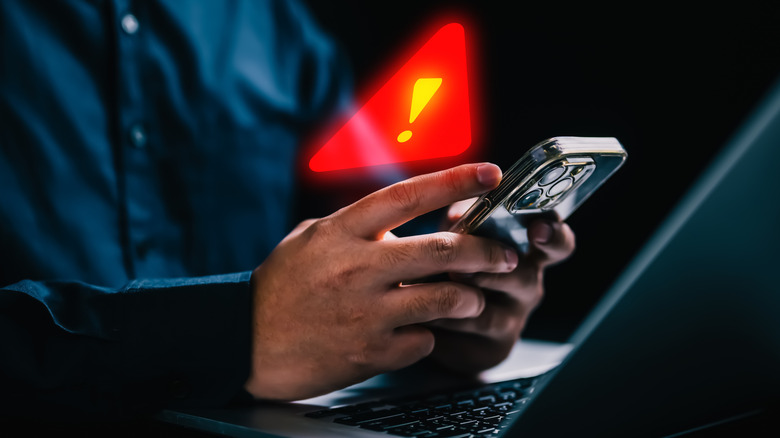What Is A USB Condom And Do You Even Need One?
We may receive a commission on purchases made from links.
When you're at home or in the office, you likely have your smartphone charging needs covered. But when you're out and about without your charger, you may need to rely on public charging stations in places like airports, train stations, shopping malls, and cafes. While charging your smartphone at these places for a few minutes may not seem like a big deal, there's a risk that the USB ports and cables could be used to install malware or steal your data. This is commonly referred to as "juice jacking." In fact, even the FBI advises against using free USB charging stations for this reason. Fortunately, you don't have to choose between convenience and security. With a USB condom, you can safely charge your device without worrying about cyberattacks.
A USB condom acts as a protective barrier between your smartphone and the public charging port you're using. You simply need to plug the dongle between your smartphone and the USB charging cable. These adapters don't have data-transfer pins, allowing only power to pass through. Essentially, this adapter converts your smartphone's USB port into a charge-only port, thereby protecting it from potential data theft or malware attacks. That's why it is commonly called a USB data blocker.
Where can you get a USB condom?
USB condoms aren't just limited to smartphones; they also work with tablets, laptops, and other devices that support USB-C charging. These USB data blockers are quite affordable; you can find them on Amazon for as little as $5.99. If you go for PortaPow's 5-pack, the price per unit drops to around $4.50. They're also available in various adapter types, including USB-A to USB-A, USB-A to USB-C, USB-C to USB-A, and USB-C to USB-C. If you don't wish to use an adapter, you can get a USB-C to USB-C charging cable with built-in data blocking for $6.49. This is perfect if you don't want to use a separate USB data blocker adapter every time you charge your phone.
All in all, USB data blocker adapters make for excellent travel accessories. They're affordable, easy to use, and most importantly, give you peace of mind when using charging stations at public stations. So, if you travel a lot, it's a good idea to get yourself a USB condom.
Do you really need a USB condom?
While USB condoms are useful, it's not the end of the world if you don't use one. That's because instances of juice jacking, though possible, are quite rare. Even the FCC (Federal Communications Commission) has not confirmed any incidents of juice jacking. Plus, both Android and iPhone devices include security features that offer a degree of protection from such attacks. This is exactly the reason why you get that "Trust This Computer" prompt after connecting your phone to a computer for data transfer.
Finally, there are other ways to protect yourself from juice jacking without relying on a USB condom. The simplest solution is to use your own charger and plug it directly into an electrical outlet, rather than use a public USB port. If you need to charge your phone multiple times throughout the day, you can also purchase a good power bank to avoid connecting your smartphone to any public charging stations.


